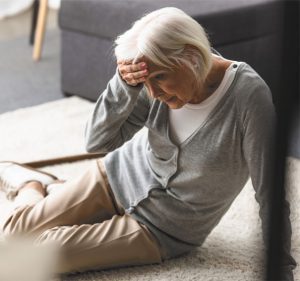 The statistics are sobering: according to the Centers for Disease Control and Prevention, every 40 seconds someone in the US has a stroke, and someone dies of a stroke every 3.5 minutes. Stroke is a leading cause of long-term disability and suffering, often leaving patients and families with physical, emotional, and spiritual injuries that drain pleasure from life and disrupt relationships and life plans.
The statistics are sobering: according to the Centers for Disease Control and Prevention, every 40 seconds someone in the US has a stroke, and someone dies of a stroke every 3.5 minutes. Stroke is a leading cause of long-term disability and suffering, often leaving patients and families with physical, emotional, and spiritual injuries that drain pleasure from life and disrupt relationships and life plans.
Stroke patients in Southwest Florida can find relief from their symptoms through the palliative care services offered by Avow, a 40-year provider of palliative care, hospice, and grief support services headquartered in Collier County. Palliative care focuses on improving a patient’s quality of life and symptom relief while they seek curative treatments from their primary care physicians or specialists. Palliative care also embraces the family unit, providing resources and support for caregivers whose lives have been disrupted by their loved one’s illness.
“Many patients can regain some of their physical function after a stroke with proper treatment,” says Dr. Cynthia Nehrkorn, vice president of medical services for Avow. “Palliative care is uniquely suited to treating stroke victims because it can help resolve not just physical symptoms, but also the mental and emotional traumas that stroke survivors experience. A stroke upends everything in life: a person’s independence, mobility, sense of safety, ability to provide self-care, and even relationships with loved ones.”
Stroke patients receiving palliative care work with a team of Avow experts to resolve their range of symptoms and concerns. Licensed social workers help patients and families identify and resolve emotional impacts of a stroke; a chaplain is also available for patients who struggle to reconcile their illness with their faith or belief system. Avow’s advanced practice registered nurses (APRNs) can prescribe antidepressants and anti-anxiety medicines for those patients with significant or persistent mood disorders. They also prescribe medications to reduce muscle spasticity, pain, muscle tension, and side effects from other treatments.
One of the most effective – and most popular – therapies Avow offers stroke patients is massage, provided by licensed massage therapists. Avow’s Jennifer Hanks, LMT, loves to see her patients relax as she works on their taut limbs. “Massage doesn’t just feel good, it also improves circulation in patients with restricted movements and spasticity,” she says. “Massage reduces muscle tension in my patients and helps resolve fluid retention, swelling, and pressure in stiff joints. Some of my patients also experience an emotional release during massage: our session may be the ‘bright spot in a bad day,’ as one patient told me. It is an escape from not feeling well, but instead, feeling whole.”
Avow also offers Reiki energy treatments to patients via a licensed massage therapist who is also a Reiki Master. “Everyone has a connection to what Reiki calls ‘universal energy,’” says Heliyana Stiemke, LMT and Reiki Master for Avow. “This energy flows through all of us as life force. As a Reiki practitioner, I place my hands close to the patient, where they are experiencing pain or discomfort. Through my training, I can feel the energy emanating from the patient; I guide that energy back into synchrony and wholeness to help resolve the patient’s discomfort. It is amazing to watch my patients relax, and to see their facial expressions of peace. This can happen even in unconscious patients – that’s the healing power of Reiki.”
Avow’s palliative care team sees patients in the outpatient clinic on Avow’s Naples-area campus, or in the patient’s home if they are physically unable to come to the office. Some consultations with patients and families are also available via telemedicine. Medicare, Medicaid, and most insurance programs cover palliative care visits as traditional office visits. Supplemental services such as massage may require payment by the patient or family.
For those stroke patients who are at the end of life, Avow’s hospice program provides comprehensive patient care and family support covered by the Medicare Hospice benefit. The hospice team can help families navigate difficult issues such as the inability of the patient to swallow or maintain adequate nutrition and hydration, or continued use of a feeding tube. Avow’s Joint Commission quality-certified hospice services are available to residents of Collier County.
All Avow programs are nonprofit, mission-based services designed to improve quality of life for those living with a serious or terminal illness or suffering from a life-altering loss. For more information, visit www.avowcares.org or call 239-280-2288.
Avow
239.280.2288
www.avowcares.org









